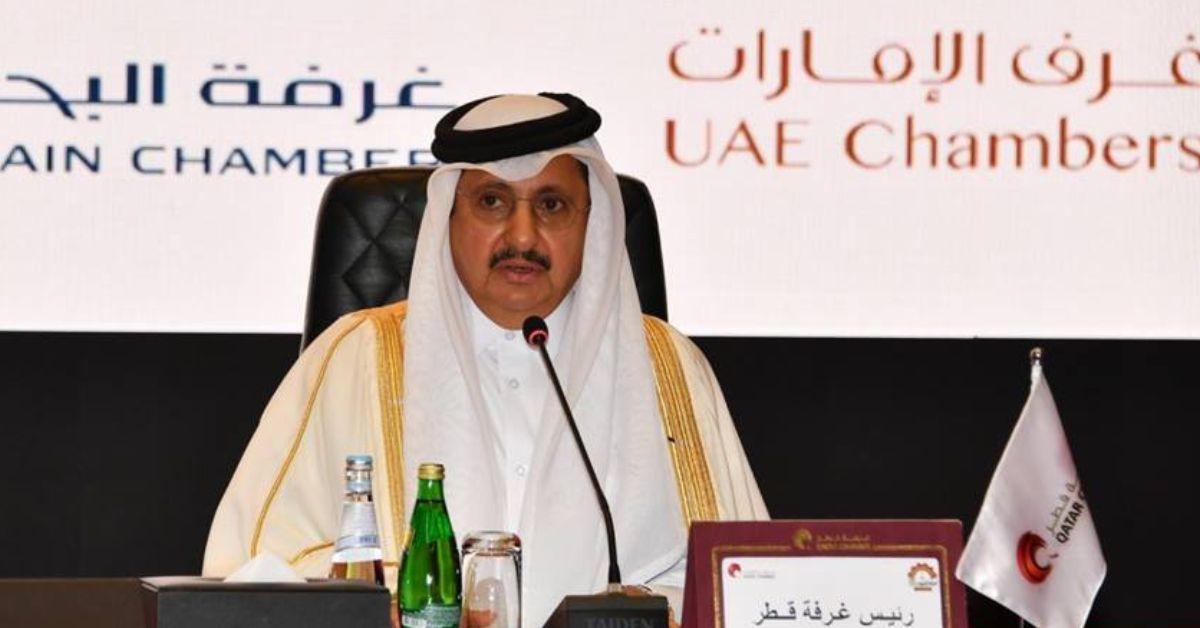DOHA — The private sector plays a pivotal role in achieving Gulf economic integration, said the Chairman of Qatar Chamber (QC), Sheikh Khalifa bin Jassim Al-Thani.
“This is especially relevant considering the ongoing political and economic shifts affecting the global economy, coupled with current geopolitical challenges and their impacts on Gulf countries. These factors have necessitated redoubling efforts in enhancing economic, trade, and investment cooperation among GCC (Gulf Cooperation Council) states,” he added.
Sheikh Khalifa bin Jassim made these remarks at the 63rd board of directors meeting of the Federation of GCC Chambers (FGCCC) at the Sheraton Hotel. The meeting, chaired by President of the FGCCC and President of the Saudi Chambers of Commerce, Hassan bin Muajab Al Huwizi, was attended by heads of GCC chambers.
The meeting focused on several topics related to enhancing economic and trade links between GCC states. Discussions also revolved around revitalizing the role of the private sector in the Gulf economy, aiming to maximize intra-Gulf trade.
In his speech, Sheikh Khalifa bin Jassim emphasized that the GCC possesses significant potential and capabilities, along with a strong desire and will at both leadership and public levels to achieve economic unity.
Sheikh Khalifa bin Jassim highlighted that the GCC has all the potential to become a strong economic alliance capable of asserting itself on the global economic map. This potential is attributed to its natural resources, distinctive geographical location, and robust relations with numerous global economic entities and alliances.
Furthermore, Sheikh Khalifa underscored the pivotal role of the Gulf private sector in fostering economic integration among member states. He stressed the importance of collaborative efforts between member chambers in supporting the Gulf private sector. These efforts aim to strengthen alliances and foster partnerships among Gulf firms.
Furthermore, he emphasized the importance of boosting cooperation between Gulf businessmen and activating mutual investments to bolster Gulf intra-trade, which has exceeded $100 billion. Sheikh Khalifa bin Jassim expressed appreciation for the efforts made by GCC countries toward achieving Gulf economic integration.
Sheikh Khalifa bin Jassim added, “In this context, we value the efforts of our countries in striving for Gulf economic integration. We are hopeful to see increased cooperation between the public and private sectors within our nations, aimed at overcoming any obstacles to such integration. Additionally, we are keen to enhance investment incentives, enabling the Gulf private sector to play a pivotal role in the comprehensive economic development of the region.”
Sheikh Khalifa bin Jassim affirmed the State of Qatar’s support for all Gulf efforts aimed at achieving economic integration. He emphasized that the Qatar Chamber is eager to strengthen cooperation between the Qatari private sector and its counterparts in other GCC countries.
For his part, President of the Federation of GCC Chambers (FGCCC) and President of the Saudi Chambers of Commerce, Hassan bin Muajab Al Huwizi, highlighted the numerous developments in Gulf economic affairs within the GCC. He noted the positive growth achieved by GCC countries, where the private sector has played a key role.
Al Huwizi underscored that the FGCCC should capitalize on opportunities arising from the council’s visions, strengthen partnerships with concerned bodies in the GCC countries at the highest levels, and foster coordination with the GCC General Secretariat. The aim is to empower the private sector and increase its contribution to the GCC GDP.
He stressed that the FGCCC has closely collaborated with various Gulf governmental institutions, including the GCC General Secretariat. Al Huwizi noted that this collaboration involves formulating economic policies by providing studies and reports reflecting the views of the Gulf private sector on economic issues. The FGCCC also actively participates in meetings and workshops organized by the GCC General Secretariat with member states to empower the private sector.
Elaborating on the accomplishments of the FGCCC, Al Huwizi indicated that it has successfully addressed 25 out of 58 topics discussed in the Consultative Meetings with the Ministers of Trade and Industry in GCC countries. Additionally, it has maintained ongoing participation with the GCC Customs Union Authority, among other achievements.
Al Huwizi said that these achievements underscore the need for increased efforts to fulfill responsibilities in the current phase, during which GCC states aim to enhance integration in economic sectors and address common issues like industry, mining, tourism, renewable energy, local content, and others. He emphasized the significance of activating the strategy through which they aspire to lead in representing the Gulf private sector.
The meeting’s agenda included approving the previous meeting’s minutes and announcing the transition of the Federation’s Presidency to the Oman Chamber of Commerce and Industry for the 23rd session from Feb. 10, 2024, to Feb. 9, 2026.
The agenda also included following up on resolutions from the 62nd meeting, the draft work program of the General Secretariat of the Federation for 2024, and the draft estimated budget for 2024. Additionally, the meeting addressed the outcomes of the consultative meeting with Their Excellencies and the Ministers of Trade and Industry of the GCC countries.

